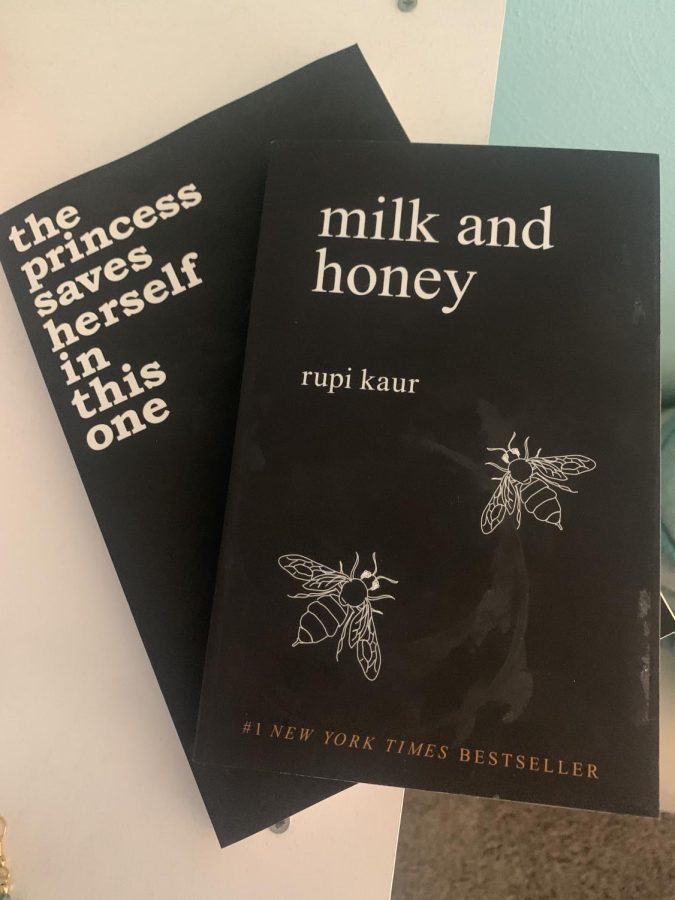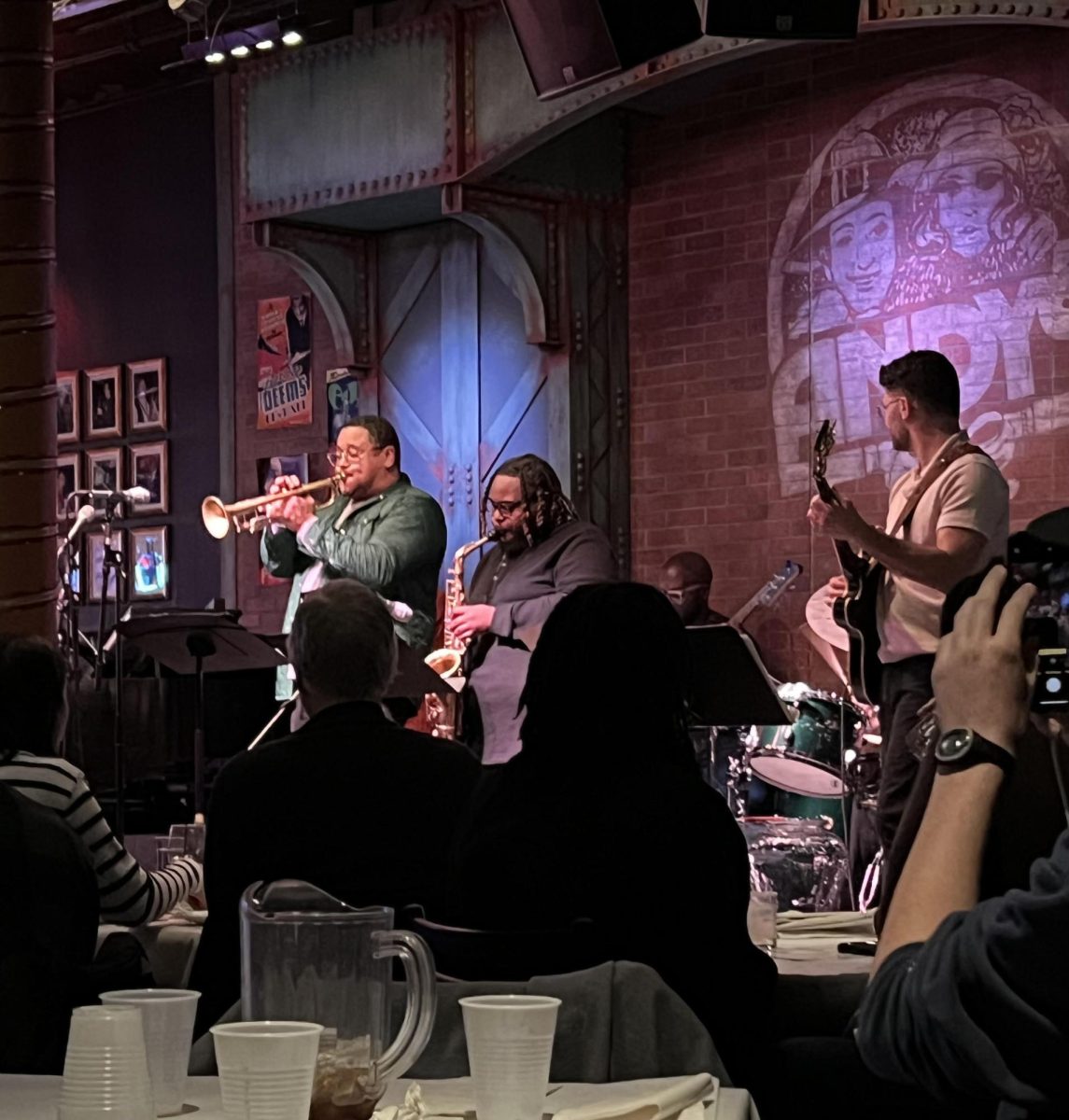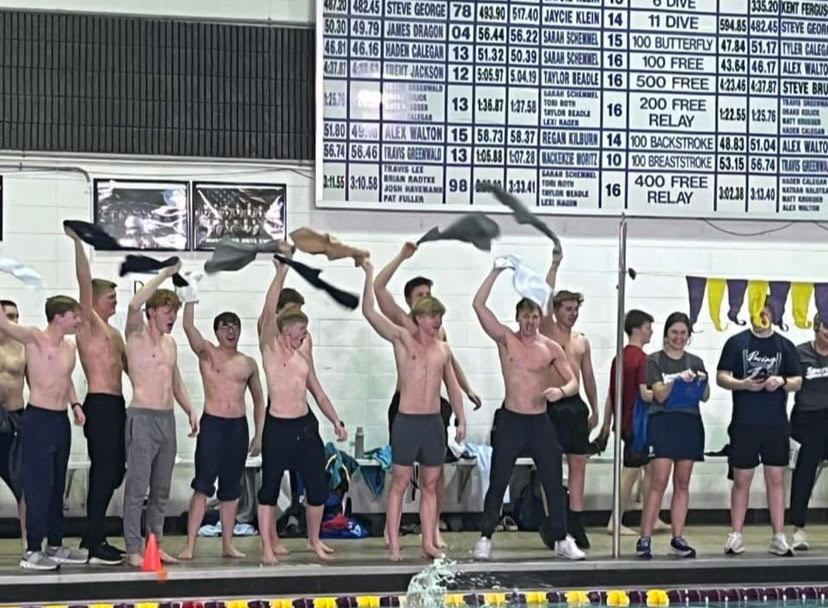Originating in the 18th century B.C., the art of poetry has carried our world through every historic event and remained a literary peephole into our souls. Serving as the catalyst for civil rights and feminist movements, poetry is a place of solace for the depressed or radical. However, contemporary forms of the art have far removed themselves from its revolutionary roots.
Distinguished poets from Maya Angelou to Robert Frost constructed a name for poetry through extreme metaphors, wit and astonishing imagery. Modern poets Rupi Kaur, Amanda Lovelace and online-persona Atticus put an end to poetry’s former elongated messages and developed “Instapoetry.”
“Instapoetry” refers to poetry collections like Kaur’s best selling “Milk and Honey” or Atticus’s “The Dark Between Stars”, poems concise enough to convey their message through an Instagram story. These poems often directly address issues such as heartbreak, depression, sexual assualt or substance abuse in a widely accessible language.
English teacher Jess Scadden identified the benefits of the new poetry style, “I have often found modern poems to be much more accessible and an authentic reflection of the experiences of simply living life in our current world.”
Present-day verse brings new, and at times necessary, changes to the craft, but the sheer transition between styles is strikingly obvious to readers.
Renowned writer Sylvia Plath artistically described her experience with mental illness,“And I see myself, flat, ridiculous, a cut-paper shadow / Between the eye of the sun and the eyes of the tulips, / And I have no face, I have wanted to efface myself,” in her poem “Tulips.”
Atticus takes a vastly different approach to the same subject. “Real depression is when you stop loving the things you love,” he wrote.
In Plath’s, and the majority of poems from her era, version the theme of the piece is hidden under a carefully assembled layer of metaphors and analogies that make the reading experience more thought-provoking. While in Atticus’s version the topic is addressed from the start, and the moral is straightforward rather than convoluted.
The major contrast between classic and contemporary verse is the forthright format of the latter style. Kaur and her colleagues waste no time distorting the matter of their poems with symbolism or length, with the majority of “Instapoetry” ranging from 15-30 words.
But does the removal of poetry’s defining characteristics result in the loss of the beauty of the trade?
In “Milk and Honey” author Kaur pened, “if you were born with / the weakness to fall / you were born with / the strength to rise.” The poem, and many of her others, feels more comparable to a motivational speech than true poetry.
Honored poet Emily Dickinson beautifully summarized the purpose of her profession, “If I feel physically as if the top of my head were taken off, I know that is poetry.”
When enjoying snippets of today’s poetry, one sympathizes with relatable topics or pities the author’s situation, but most examples fall short on the reaction Dickinson evokes. “Instapoetry” lacks a degree of uniqueness and, therefore, fails to live up to veteran-readers’ expectations for the art.
Modern verse’s limits in imagination appear in topics discussed too, including the aforementioned triggering themes of suicide, assault and mental health disorders. However, “Instapoets” fall-short on illustrating their opinions on matters outside of the blunt and bleak realm.
Wendy Cope’s piece titled “The Orange” follows a woman sharing an orange with her coworkers and finding peace in the simplicity of life. Cope ends the poem with, “I did all the jobs on my list/ And enjoyed them and had some time over. / I love you. I’m glad I exist.”
This decorative breakdown of office life succeeds in inspiring its audience to appreciate the mundane, an intended reaction to a composition. Cope’s success points out how “Instapoetry” neglects to spark a change within its admirers.
Lacking enlivening or unique elements of literature, “Instapoetry” leads its name towards an untouched and possibly reputation-altering era.
Scadden commented on the importance of contemporary poetry lying within its timeliness, while also confirming the longevity of the classics, “If the purpose is to see ourselves reflected in the words or learn how others who live differently than us experience life, modern poetry may outweigh classical poetry. There are, of course, examples of classical poetry like “I Hear America Singing” by Walt Whitman and “I, Too” by Langston Hughe that illustrate various perspectives on similar topics that are still relevant to today.”
Kaur told Rolling Stone her opinion on straightforward poetry, “People will understand and they’ll feel it because it all just goes back to the human emotion.” She is correct in saying the general public will connect more with the simplistic poetry, but while simple does not mean bad, does it mean poetry?















